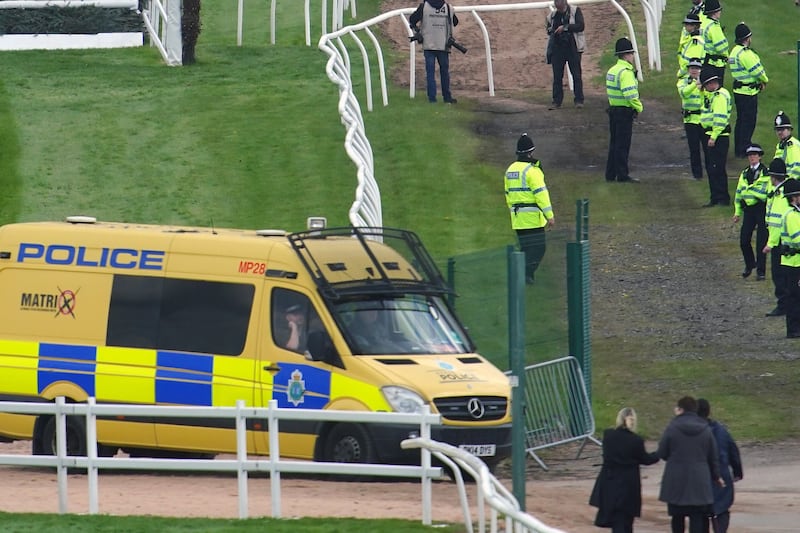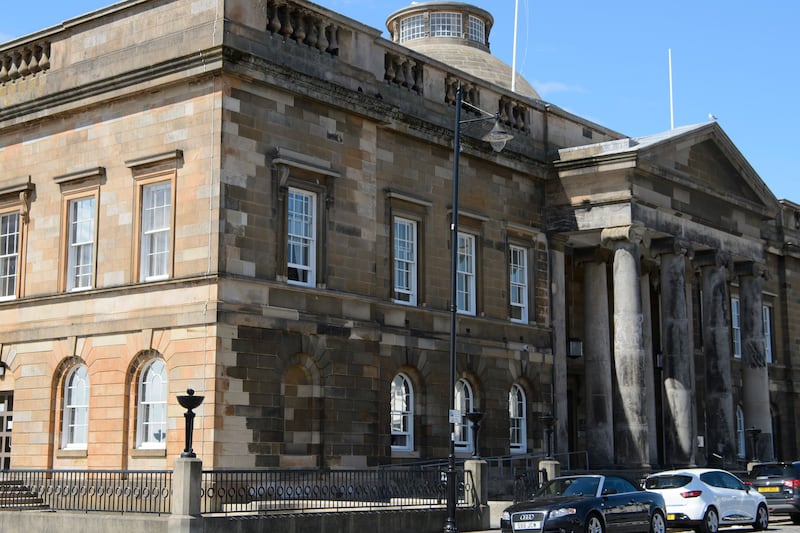An Animal Rebellion protester has hit out at the justice system after being found guilty of causing damage worth thousands of pounds to a Buckingham Palace fountain by releasing red dye into it.
Louis McKechnie, 23, Christopher Bennett, 27, Riley Ings, 27, Claire Smith, 26, and Rachel Steele, 48, were found guilty at Southwark Crown Court on Wednesday of causing £7,080 of criminal damage to the Queen Victoria Memorial water feature on August 26 2021.
The jury of 11 reached verdicts after seven hours and 56 minutes of deliberation.

After the hearing, McKechnie told the PA news agency he was “relatively unsurprised” at the verdicts, and called the justice system “rigged”.
He added: “I’m going to be honest, for a long time I haven’t seen the justice system as especially just.
“The system in this country seems rigged from the start.
“I’m not surprised by the verdict, I don’t feel any guilt for my actions, but I don’t expect the courts to actually be about justice and truth, it’s about maintaining the status quo and it has effectively done that.
“This action was three years ago. Since this action, over the last three years, we’ve reached 1.5 degrees in warming, we’ve hit 40C, and we’ve gone over that several times. Climate emergency has got worse.
“My generation’s in a worse position than we were three years ago exponentially with the climate urgency we’re facing, it’s even more urgent we do something about it now, although there is less that can be done.
“And so, while this is generally the result we expect when we take these actions – you know, I take responsibility and accountability for I did – I feel no guilt, and I think it was the correct thing to do at the time.”
McKechnie also said their message to the King was to “call for a plant-based food system if you really care about any of the things you claim to”.
He said: “We did this because we think the royal family still has a responsibility to this day to step up and show true leadership.
“If Charles claims to be, you know, a climate-conscious King, he’s got to show it, surely.
“He barks the right stuff, but where is his bite? I’m not seeing it. It starts with calling for a plant-based food system.
“King Charles, that’s our message to him – call for a plant-based food system if you really care about any of the things you claim to.”
The prosecution previously said the dye not only turned the water red, but also stained the stonework of the fountain, and CCTV footage shows a number of the protesters dyeing their hands red and then leaving handprints on the stonework of the fountain.
Prosecutor Ailsa McKeon said in a closing speech on Friday: “There is no dispute that red dye was in fact added to the water on that day and all of them have accepted that they intended for that water to be turned red… to create the impression of a bloodbath.
“What they each deny is that they intended or were reckless as to causing any damage and in fact that damage was caused at all.”
The court heard previously that the fountain, which is cleaned once a month, received an emergency clean at an extra cost after the protest.

Michael Robert Turner – an assistant manager for Royal Parks at the time of the incident – previously told the jury the marble is “porous” and there was a risk the dye would seep in and stain the stone if it was not immediately cleaned.
Laura Stockdale, defending Steele and Bennett, argued the dye was designed to be added to bodies of water, including fountains, and Royal Parks “could have just left the red dye in the water to weaken as time passed”.
She said turning the water red did not interfere with the structure of the monument nor affect its value.
“The most that the Crown can sensibly say is that it affected the aesthetics,” Ms Stockdale said. “But members of the jury, isn’t that just subjective? Is that really damage?”
Shina Animashaun, defending Ings, McKechnie and Smith, made the same point that the dye was “fit for purpose”.
Of his clients, he said: “They came there to say just because you are a royal member of the family does not mean that you should have different responsibilities to us (in relation to the climate).”
Both defence barristers said their clients neither intended to cause damage nor were they reckless as to whether the Grade I-listed fountain would be damaged.
Bennett, of Fish Ponds Road, Bristol; Ings, of no fixed address; McKechnie, of Claremont Road, Dorset; Steele, of Capworth Street, east London; and Smith, of Chadwick Street, Leeds, had each denied one count of criminal damage.
They will be sentenced on October 18.









